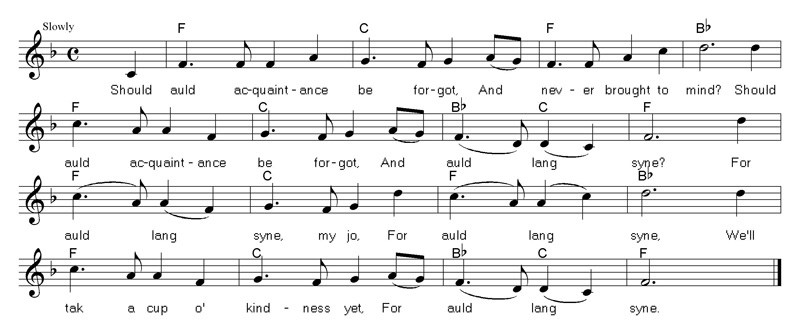
auld [awld] Examples adjective Scot. and North England.
- old.
Examples from the Web for auld Contemporary Examples of auld
Auld lang syne” is Scottish-Gaelic for “old long since,” or, more idiomatically, “days gone by” or “time long past.
The Most Confusing Christmas Music Lyrics Explained (VIDEO)
Kevin Fallon
December 24, 2014
Take this verse by famous Scottish poet Robert Burns in his famous Scottish poem “Auld Lang Syne.”
Up to a Point: A Free Scotland Would Be a Hilarious Disaster
P. J. O’Rourke
September 13, 2014
When she stands by the bedside of a dying Victor McLaglen and sings “Auld Lang Syne,” it is an occasion for real tears.
Shirley Temple Survived Being the Biggest Child Star of All Time With Wit and Grace
Malcolm Jones
February 11, 2014
New Years means Champagne, “Auld Lang Syne,” and good college football.
The 2014 Dummies’ Guide to College Football Games
Ben Jacobs
January 1, 2014
But it was a time for everybody to join hands as we did on formerly Air Force One and sing “Auld Lang Syne.”
The Daily Beast
January 19, 2009
Historical Examples of auld
Or the thraldom of the people in “the days of auld langsyne?”
Blackwood’s Edinburgh Magazine, No. 327
Various
Stanton sang a solo, and then all joined in “Auld Lang Syne.”
Dillon Wallace
“I made that promise for the sake of ‘auld lang syne,'” answered Mr. Dunbar.
M. E. Braddon
“And when the auld one did get strucken, he could not shriek,” added Reuben.
Hall Caine
“But auld Wilson’s spite on her olas did cap me a laal bit,” said Matthew again.
Hall Caine
British Dictionary definitions for auld auld adjective
- a Scot word for old
Word Origin for auld Old English āld Word Origin and History for auld adj.
variant of old that more accurately preserves the Anglo-Saxon vowel. Surviving in northern English and Scottish; distinctly Scottish after late 14c.
 Liberal Dictionary English Dictionary
Liberal Dictionary English Dictionary